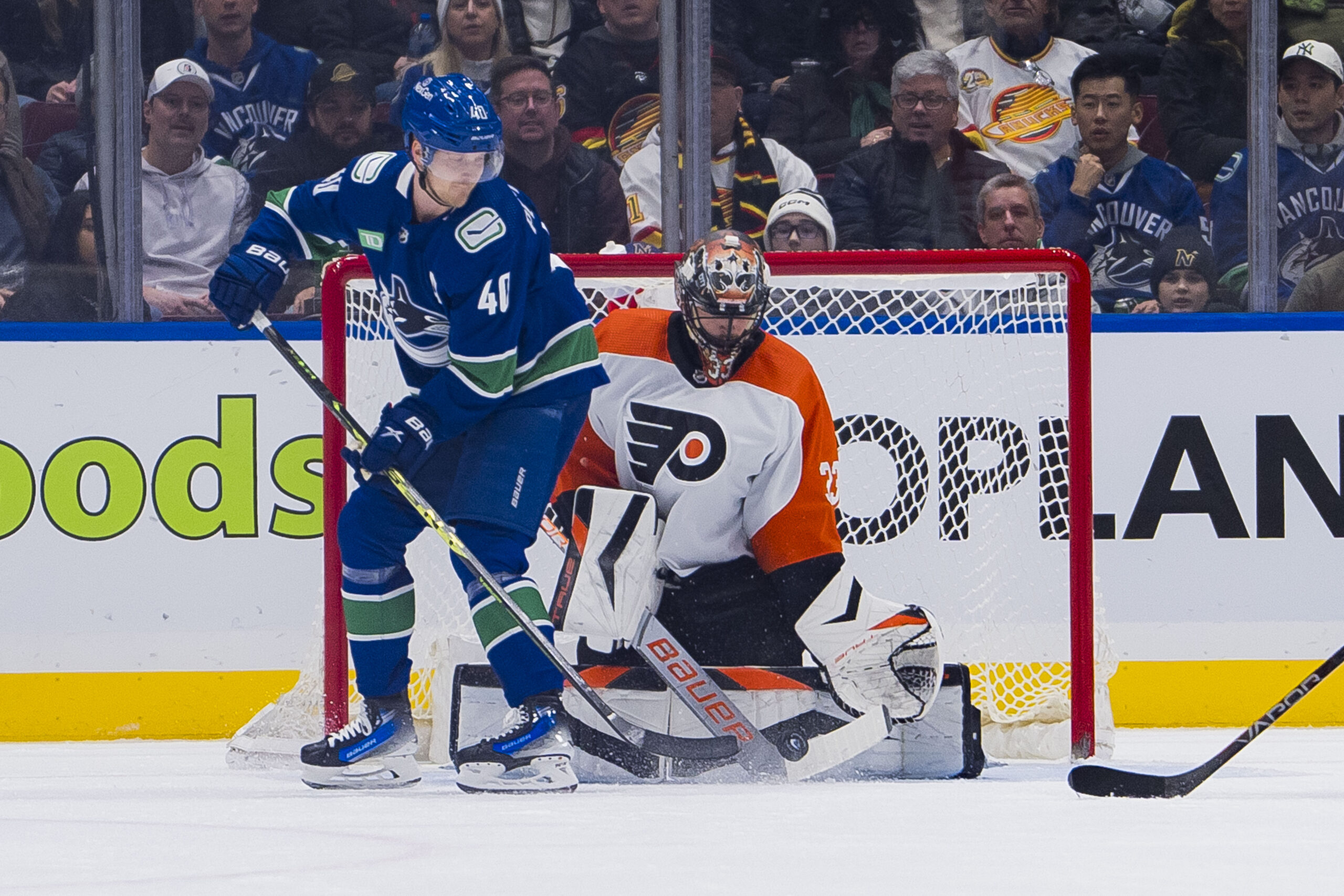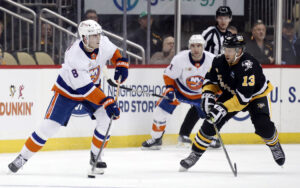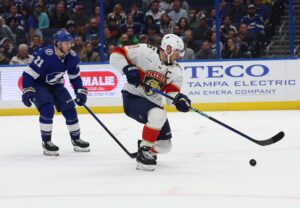Happy New Year, hockey fans! With a special nod to Vancouver Canucks fans specifically. They are off to a marvellous start, enjoying the fact that they, like their team, are at the top of the standings.

Peace, Love, and Understanding (Not You)
A predictable phenomenon happens as sports teams improve: their fans become insufferable to other fanbases. All perfectly normal, given the amount of, ah… “excremental dialogue” that happens in sports. Look at the teams up there: Detroit Red Wings, Ottawa Senators, New Jersey Devils. All improved teams this year. The Arizona Coyotes hope to join the list soon.
The Chicago Blackhawks winning Connor Bedard after their nightmare revelations certainly makes them a target. The Vegas Golden Knights winning a Stanley Cup after just six seasons removes any New Baby smell they had.
But Canucks fans are something different. Good or bad – and usually bad – they have one distinct quality that really stands out from the crowd. As last season’s Evolving Hockey survey showed in December 2022:

Nobody hates this team – or its fans – like the Canucks fans themselves. There is a certain amount of mockery directed at fans of other teams trying to cast aspersions on the Canucks. Any insult attempted will be met with either an eye roll – “Heard it!” – or tacit agreement. In their honour, we’re using their team for our examples of hockey media – and by extension hockey fans – fights.
Let’s go into the new calendar year by setting our “choose your battles” drop-down menu to “ALL!”
Hockey Fans Finances
“This is a $40 million contract.”
Describing a contract this way is limited at best. Going by the total amount of a deal is how player agents and team owners may think of them, sure. The agent is collecting a cut of that, after all, and the owner is paying the bill. But every other detail is far more important to both players and general managers. And they should be to fans, as well.
If, for instance, Canucks fans heard that Elias Pettersson just signed a $70 million deal, they’d be ecstatic! The detail that it’s only four years long might put a damper on that feeling.
In those four years, the owner will want to get $70 million worth of revenue from Pettersson. But when exactly he does isn’t all that important. The best, of course, would be in at least one successful Stanley Cup run and other deep runs. Ticket sales can’t get much higher in Vancouver, but all the bunting around a Cup win is a financial windfall. But jersey sales will help, too.
For Pettersson himself, he’ll know his total amounts and can hand that number to his financial planners. He’s set for a long negotiation for his next deal or even another work stoppage when this CBA expires.
Great! Except…
Outside of those two, however, the rest of the details matter. A LOT. The general manager needs to work around four seasons of a $17.5 million cap hit for one player. A star, certainly, but one that wants to see a Stanley Cup win and has given a time frame for it. Four years before he’s an unrestricted free agent and what is the GM going to do about it?
That general manager isn’t thinking of the contract as $70 million. He’s looking at $17.5 million per year for four seasons. In the same way, the buyout of Oliver Ekman-Larsson was a solid, logical move. But that’s not going to stop it from hurting when it jumps over $4.7 million in a couple of years. Until then, there’s space to take advantage of this season and next.
It’s not a $17 million buyout to him because he needs to work around the amounts in each individual season. There’s no paying out early on this cap, or deferring it. And all hockey fans know it and are watching closely. As call-in radio shows or those writers online have experienced.
Fans will see the contract in our example as being “just” four years with their star player. One that is taking up a huge chunk of the salary cap. And while Vancouver tends to be very patient with their players, one making that much will find that patience tested. Fan bases across the league have turned on players they don’t feel are earning their deals.
Then there are the other players, signed and otherwise. If, as suspected, the salary cap reaches $92 million (h/t CapFriendly) in 2025-26 then any players negotiating with Vancouver need to consider this mammoth deal. They are effectively fitting into a $74.5 million cap for 22 players.
Hockey Fans Describing the Standings
The NHL does love their bonus overtime-loss-point standings, and why not? It looks like the majority of teams are within striking distance of the playoffs at any given moment. Fans of bad teams – including Canucks fans of the past several years – have taken solace in this sleight of standings.
This year, for instance, the Edmonton Oilers are all of five points from a playoff spot as of Saturday night. Why can’t they make it this year? Well, they might. But there are four other teams in their way they need to leapfrog to reach those playoffs.
Surely, describing teams’ point percentages would result in a more accurate reading of the standings? A bit, but again with the “loser point” out there, it depends on who your team lost to. Or beat, as they get the extra point for not succeeding. No standings that describe two-thirds of any league as being “over .500” can be considered real.
Needing overtime to beat teams in the other conference doesn’t matter. If they get extra points, so what? They might get home town advantage if you meet in the Stanley Cup Final. Okay, I guess fans will just have to live with that terrible punishment. A team in your division that racks up their own OTL points, though? That’s why the annoying “Regulation Wins” and “Regulation/Overtime Wins” columns infest the standings now.
Make Your Point
The point is points. Total points, even for teams with unequal numbers of games played, is the only way to describe the standings. In the event of a tie, then lord knows there are enough tiebreakers out there to decide who gets the nod. Pedantic hockey fans have added “yeah, but those were in overtime” to their list of debate points, for better or worse.
Now, there is certainly an argument for using win percentage to compare the relative strength of teams. Mid-season, there are always mitigating factors – and Canucks fans are good at finding those, too. But like describing power plays or faceoff skills, percentages can be useful as a general guide. The details still leave plenty of space to argue about who’s better.
That being said, a team having games in hand only has the potential to climb in the standings. The league doesn’t take points away from a team during the season. A win – at any time of the year – is a win and those are the only certain points a team has. One team with five games in hand on another but is one point back – is still one point back. The team ahead of them won’t suddenly move backwards.
You disagree? Bring your best arguments. We have all year for it.
*We admit we’re only taking this up because it’s a particular bugbear of local writer Thomas Drance.
Main Photo Credit: Bob Frid-USA TODAY Sports






